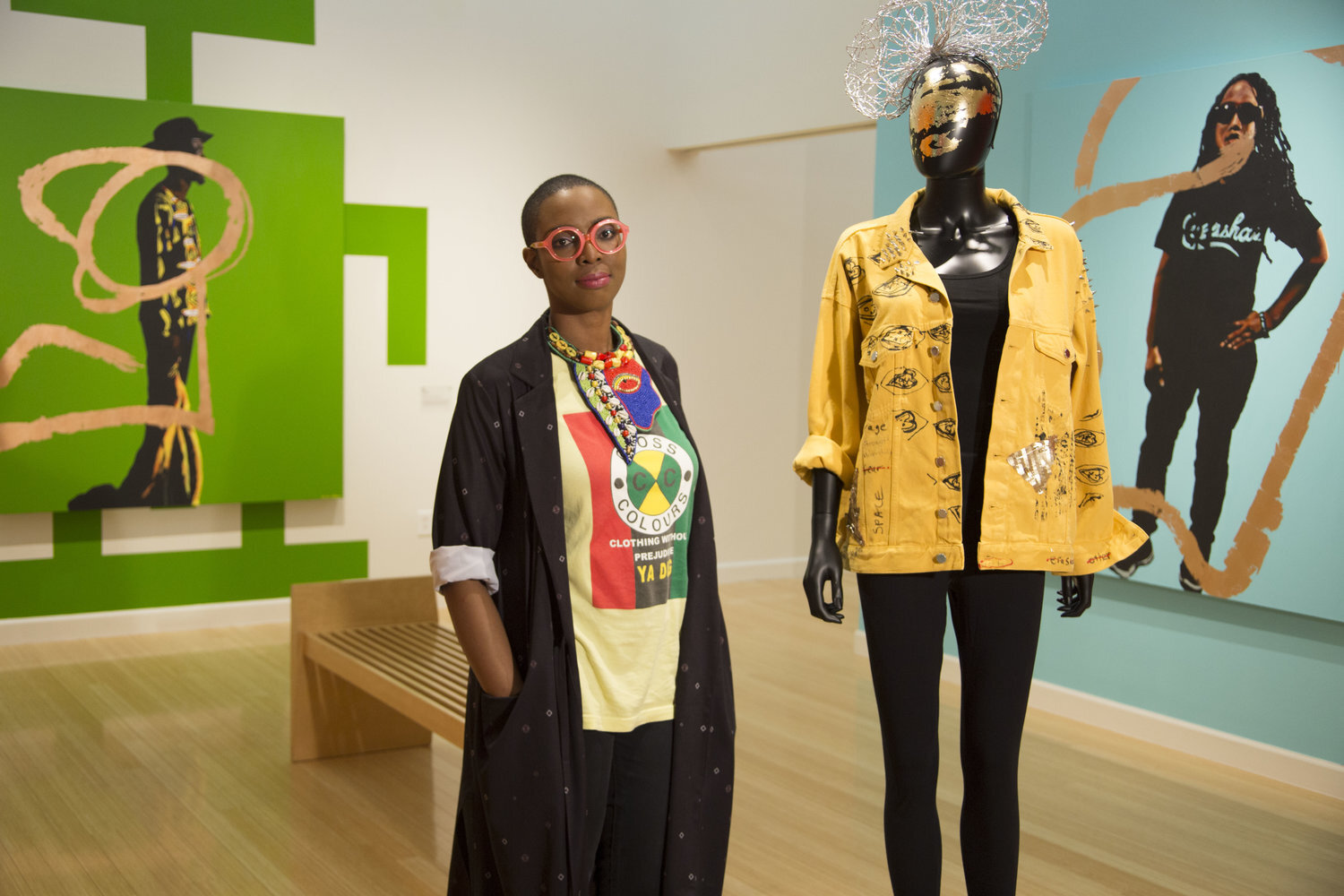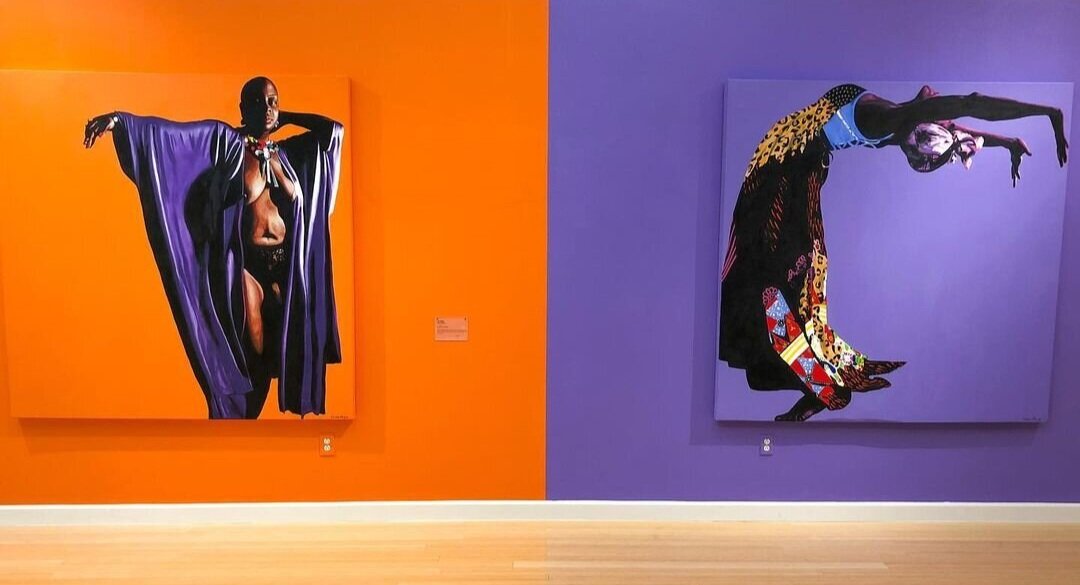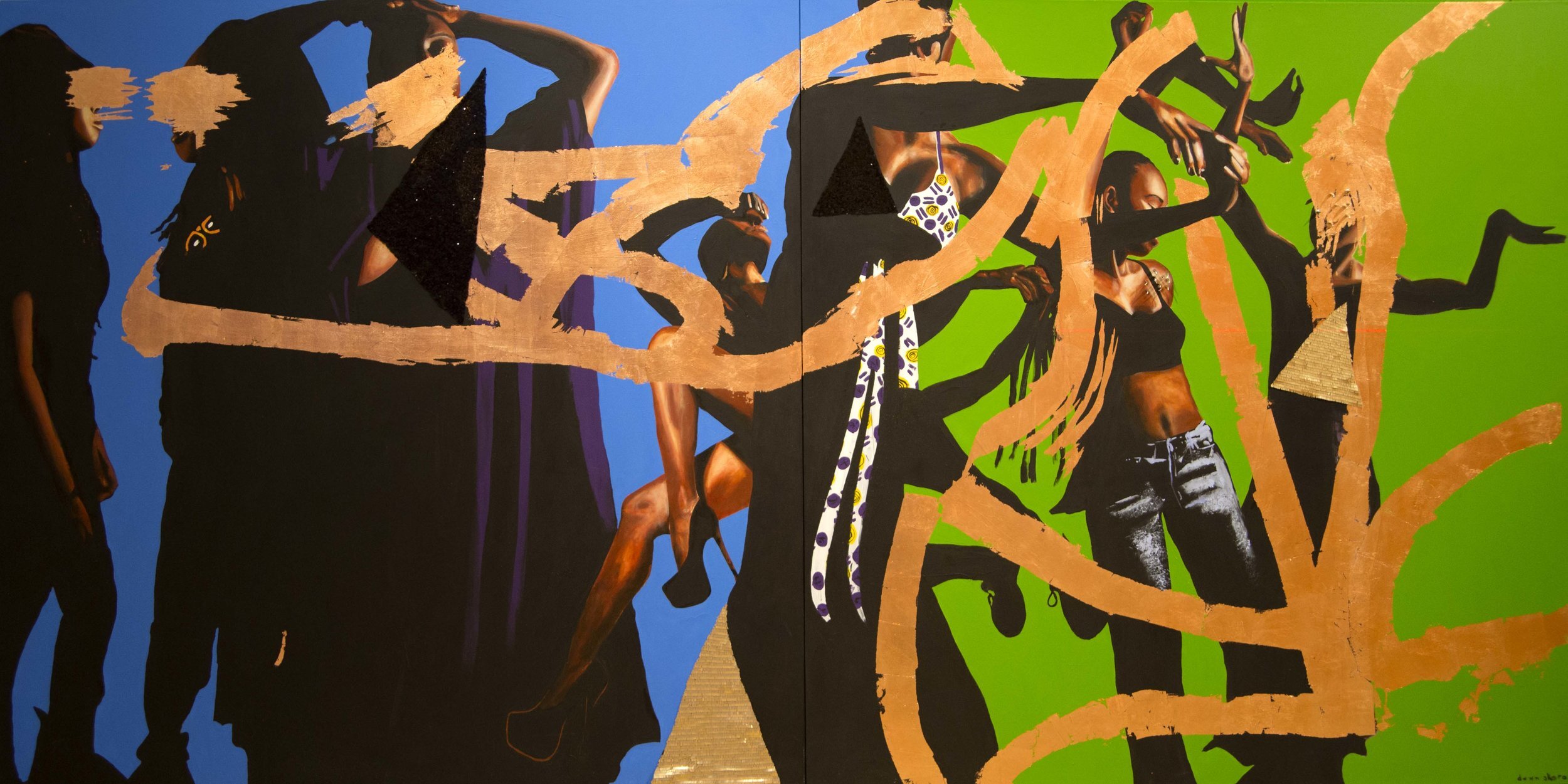
Punk Noir
March - July 2018
Dawn Okoro
Nigerian American artist Dawn Okoro lives and works in Austin, Texas. She received her bachelor’s degree from the University of Texas, and her law degree from Texas Southern University.
Her desire to become an artist spawned from her love of fashion illustration, photography, and design. Okoro’s work has been featured in Forbes, Architectural Digest, Hyperallergic, Drawing Magazine, and The Austin Chronicle.
Her work has been shown at the Texas Biennial, New York University, Notre Dame University, Rice University Museum, George Washington Carver Museum, and MoCADA Museum in Brooklyn.
Exhibit Summary:
The Afropunk supplants the image of punk that has long been occupied by whiteness. This version of blackness exists far beyond its aesthetic value. It is anti-establishment by nature and works to reclaim and reveal influence in music, fashion, and art. Afro-futurism is an intellectual and artistic movement that uses science, technology, and science fiction to speculate on black possibilities. Both the stylistic and intellectual movements linked to Afropunk and Afro-futurism are present in the works of mixed media artist and painter Dawn Okoro (b. 1980).
The artist has cited the colorful portraits of Barkley Hendricks, the iconic fashion photography of Richard Avedon, and the pop art images rendered by Andy Warhol as major influences. Okoro also draws inspiration from West African proto-writing traditions known as adinkra among the Akan peoples of Ghana and nsibidi and Uli rooted in her Nigerian Igbo heritage.
Featuring portraits of black musicians, filmmakers, photographers, and other creatives – Punk Noir revels in the divine feminine and masculine energy of her subjects. Through color, pose, and clothing Okoro conveys a sense of grit, glamor, and grace. This is reinforced by her gestural use of copper to obscure the body and alludes to issues of erasure, self-agency, and resistance. Indeed, Punk Noir offers an alternative to life lived in a black body on a stark white canvas. For Okoro, punk has always been black.













